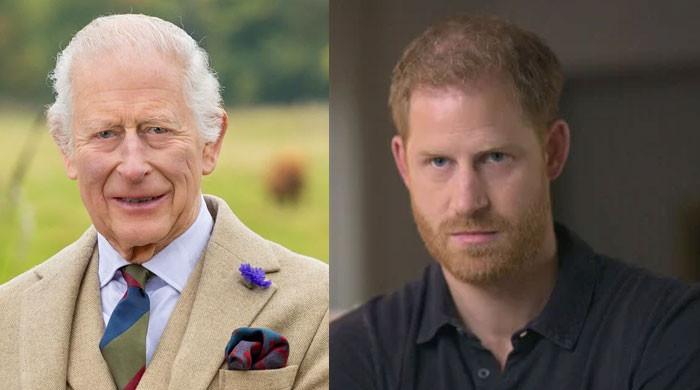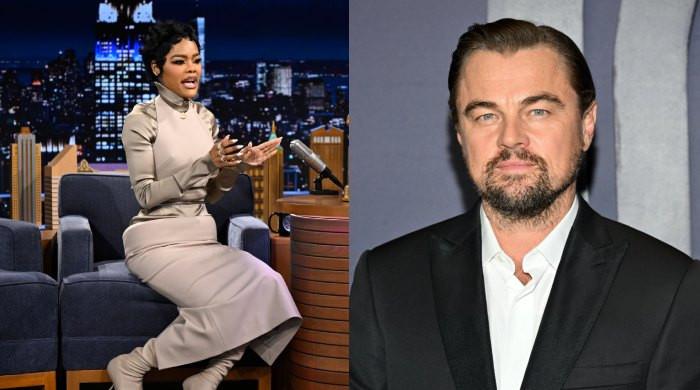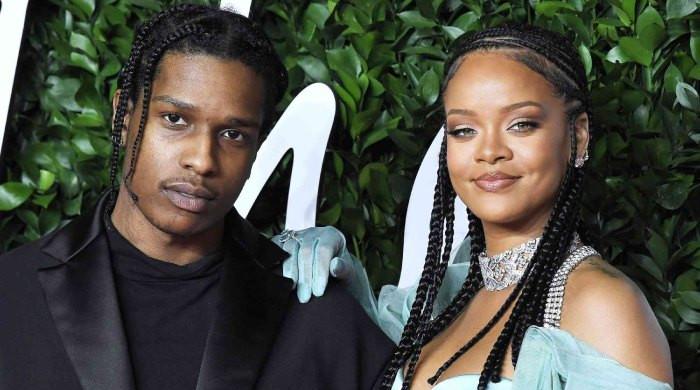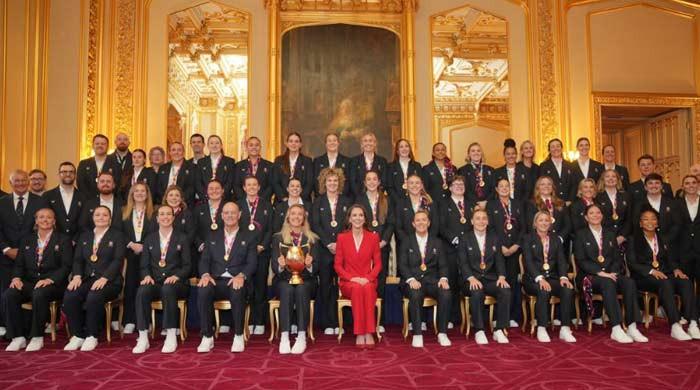Entertainment
Prince Harry puts the monarchy at risk: ‘He’s weakening it!’

Insiders believe King Charles holds a very different view of Prince Harry, and its not positive where the monarchy’s future is concerned.
The source shared everything during their interview with RadarOnline.
According to their findings, King Charles has a number of thoughts regarding Prince Harry, the biggest of them being that he will ‘weaken’ the monarchy, should he be allowed near it.
They were also quoted saying, “Charles is resolute – Harry will not be reinstated as a working royal.”
Reason being “the king feels his son represents the very opposite of the values he wants the crown to embody. Harry attracts constant controversy, and the monarchy cannot afford that.”
Also, “the notion of a part-time role has been ruled out entirely. The king has made his position crystal clear.”
However, that is not to say that “Charles still values his bond with Harry as a father, but when it comes to royal duties, it simply can’t happen. The monarchy has to come before personal emotions.”
An aide also came forward and admitted, that behind the scenes “The king made it plain – there’s no return. Harry and Meghan chose their path when they stepped away, and while they can keep living in America, there will be no half-measures or return to royal duties.”
A palace source also echoed similar sentiments and said, “This comes down to stability and fairness. The rest of the working royals take on a huge burden, and allowing Harry to drift in and out would undermine their work and betray public confidence.”
Entertainment
Teyana Taylor, Leonardo DiCaprio Golden Globes drama sees new twist

Teyana Taylor is clearing the air about Leonardo DiCaprio’s animated Golden Globes moment that took over social media, revealing that the viral clip didn’t quite unfold the way fans initially thought.
The actress and singer addressed the buzz during her appearance on The Tonight Show on Wednesday, Jan. 14, where she continued celebrating her first-ever Golden Globe win.
The clip in question, shared on the ceremony’s official TikTok page, showed DiCaprio laughing and gesturing enthusiastically during the broadcast, leading many viewers to assume he was chatting with Taylor.
She admitted she initially thought the same.
“Okay, so look, yesterday, I thought I broke the Da Vinci Code, right?” Taylor told Jimmy Fallon, referencing her earlier comments that suggested they were bonding over KPop Demon Hunters during the show.
Taylor explained that her excitement stemmed from the fact that her daughters, Iman “Junie” Tayla Shumpert Jr., 10, and Rue Rose Shumpert, 5, are huge fans of the Netflix animated film, which won Best Motion Picture (Animated) and Best Original Song that night.
At first glance, she assumed DiCaprio was reacting to her.
“So when I first seen it, I didn’t watch the whole thing. So I was like, ‘Oh you’re talking about Kpop Demon Hunters, he’s talking about me,’” she said.
But after watching the full clip, and seeing fans attempt to lip-read the exchange, Taylor realised she needed answers.
She picked up the phone and called her longtime friend.
“I was like, ‘You can’t be talking to me, were you talking to me?’ Because I already told people you was talking to me,” she admitted.
According to Taylor, DiCaprio had apparently discussed KPop Demon Hunters more than once that night.
“So apparently he had two KPop Demon Hunter conversations that night, so KPop Demon Hunters was just in his mouth all night,” she joked.
The situation sparked some playful jealousy on Taylor’s part.
“Who else is you chewing your invisible gum with?” she teased, adding that DiCaprio didn’t even remember who he had been talking to at the table.
Despite the confusion, the moment only added to the buzz surrounding their film One Battle After Another, which picked up four Golden Globe wins, including Best Motion Picture (Musical or Comedy) and Taylor’s award for her role as Perfidia Beverly Hills.
Both stars are now heading into the 2026 Actor Awards on March 1 with individual nominations, proving that even a misunderstood viral moment can end on a high note.
Entertainment
How A$AP Rocky and Rihanna fell in love?

A$AP Rocky is opening up about the unexpected person who helped steer him toward a life-changing romance with Rihanna, his mother.
During a recent appearance on the Jan. 15 episode of Popcast, the rapper, whose real name is Rakim Mayers, revealed that his mom, Renee Black, was the first to suggest he should date the global superstar long before their friendship turned romantic.
Looking back, A$AP shared that his mother was surprisingly direct about it.
“My mother used to say s–t like, ‘I know you like this girl that you with right now,’” he recalled, adding that she would then say, “‘But I want you with Riri.’”
At the time, he brushed it off, insisting they were just friends.
“‘Ma why you keep saying that? That girl don’t even want me like that. Like be cool, Ma. Like that’s just my friend. Chill,’” he remembered telling her.
But his mom didn’t back down. “‘I’m telling you, she real,’” A$AP said, before adding with a laugh, “And mothers know best.”
Their bond eventually evolved into a romantic relationship in late 2019, and since then, A$AP Rocky and Rihanna have built a family together.
The couple now share three children: RZA, 3, Riot, 2, and Rocki, who is just three months old.
For A$AP, the connection has always felt natural, even inevitable.
“It was just like we were on the same page,” he explained. “Born the same year. My dad is from her country. My family, when I go back, I get to see both sides of my family. It’s so many similarities, it’s just funny. We laugh about it a lot.”
Even before romance entered the picture, he admitted there was always something special there.
“She was always my boo, you know what I’m saying?” he said. “Like I always f–ked with her.”
Still, A$AP believes the timing mattered.
“I’m thankful that she was put in my life at that time,” he shared, explaining that neither of them was ready earlier.
Rihanna has echoed that sentiment, later saying the pandemic played a role in accelerating their relationship. “COVID sped up our relationship,” she told Interview Magazine in 2024. “There was no denying it… It just happened.”
In the end, it seems his mother saw the love story coming long before either of them did.
Entertainment
Princess Kate crowned England’s Great with fiery Lioness spirit

William’s wife Kate brought charm back to the royal family with her heartwarming gesture, receiving powerful titles after her latest royal engagement.
The Princess of Wales appears in the lioness spirit as she represented the modern monarchy with a reception at Windsor Castle for the England Women’s Rugby team, celebrating their World Cup win.
As the patron of the Rugby Football Union, Princess Kate led the way at her first solo royal engagement of 2026 with a celebratory reception.
She looked glam in a red pantsuit, seemingly sending a nod to the team’s Red Roses nickname.
Kensington Palce shared the stunning photo of Kate with the team on her and Prince William’s official Instagram page, which brought her England’s great title from fans.
The post garnered massive likes and hearts from fans, with some honouring the Princess with powerful titles.
One described the picture a “brunch of beautiful English roses,” calling Kate “beautiful princess.
“God bless them make England great.”
Another admired the future queen as “A perfect England Red rose in the middle.”
Kate previously wore the red ensemble, featuring an asymmetric jacket and wide-leg trousers, for the launch of her Shaping Us campaign in 2023.
While Kate was hosting the rugby team, her husband William had a solo engagement of his own on the same day in his role as patron of We Are Farming Minds, which works to support farmers’ mental health.
The heir to the British throne visited a farm in western England, where he took on tasks like pruning apple trees and feeding sheep.
-

 Politics1 week ago
Politics1 week agoUK says provided assistance in US-led tanker seizure
-

 Entertainment1 week ago
Entertainment1 week agoDoes new US food pyramid put too much steak on your plate?
-

 Entertainment1 week ago
Entertainment1 week agoWhy did Nick Reiner’s lawyer Alan Jackson withdraw from case?
-

 Business1 week ago
Business1 week agoTrump moves to ban home purchases by institutional investors
-

 Sports5 days ago
Sports5 days agoClock is ticking for Frank at Spurs, with dwindling evidence he deserves extra time
-

 Sports1 week ago
Sports1 week agoPGA of America CEO steps down after one year to take care of mother and mother-in-law
-

 Business1 week ago
Business1 week agoBulls dominate as KSE-100 breaks past 186,000 mark – SUCH TV
-
Sports6 days ago
Commanders go young, promote David Blough to be offensive coordinator






